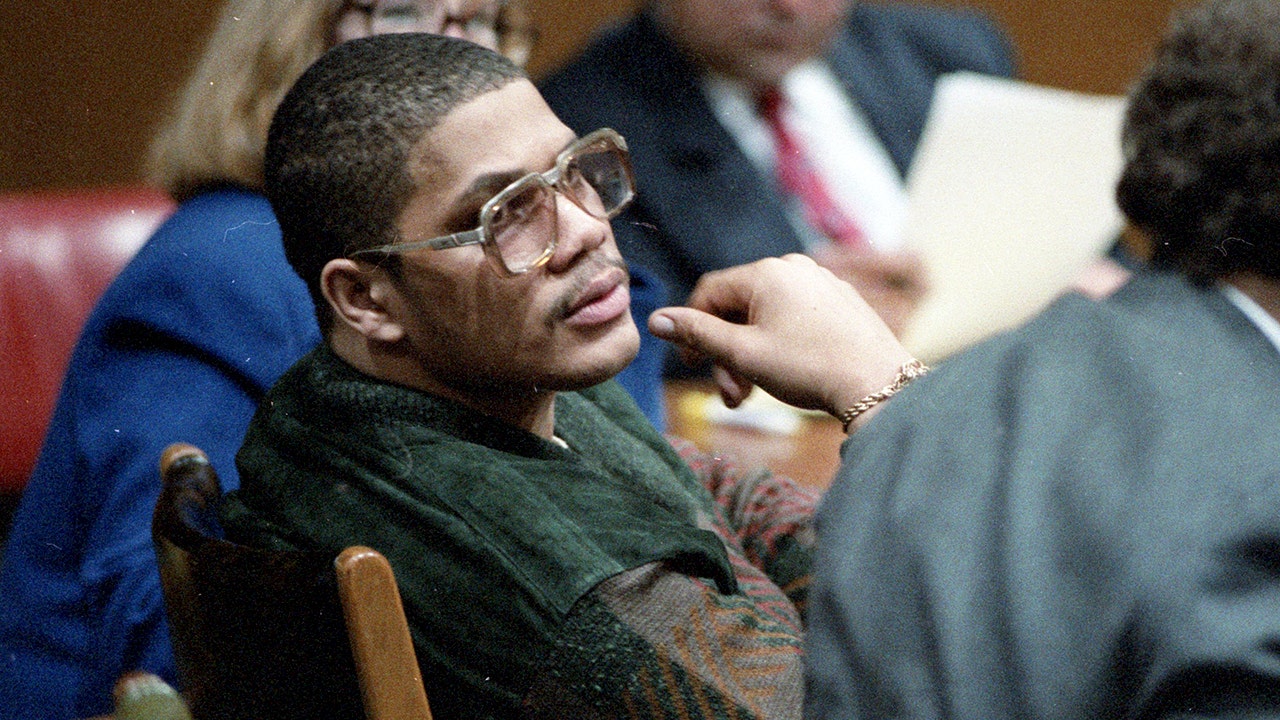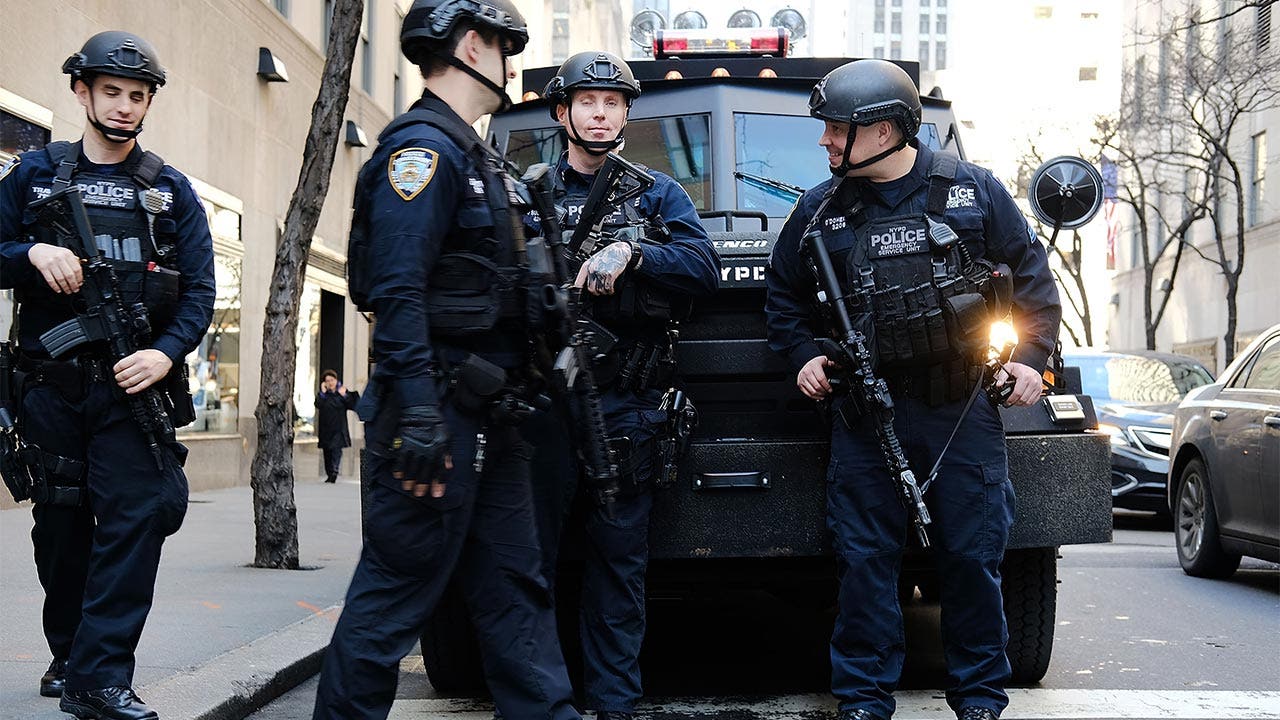New York City cops are calling the impending release of a getaway driver who sped three men away after they murdered a rookie officer in 1988 “especially outrageous.”
Scott Cobb, now 60 years old, drove David McClary, Todd Scott and Phillip Copeland to an intersection in South Jamaica Queens, where 22-year-old officer Edward Byrne was parked in the early hours on February 26, 1988.
With just a month on the force, Byrne had been stationed outside the home of a witness who was slated to testify against drug kingpin Howard “Pappy” Mason.
While Cobb distracted the officer, McClary shot him five times in the head at point-blank range. After the attack, the killers received an $8,000 payment from Mason.
NEW YORK PAROLE BOARD TO RELEASE CONVICTED COP KILLER 46 YEARS AFTER COLD-BLOODED MURDER
Edward Byrne was shot dead in 1988 by Scott Cobb and three accomplices.
After 34 years in prison at Dannemora, Cobb’s release is scheduled for Aug. 9, according to the Police Benevolent Association of New York. He has been eligible for parole since 2013, but this is the first time the Parole Board has granted his request.
“All cop-killer paroles are infuriating, but this one is especially outrageous considering the shock waves this crime sent through the NYPD, the city and nation,” PBA President Patrick Hendry said in a statement.
NEW YORK MAN GRANTED PAROLE AFTER DECADES IN PRISON FOR KILLING PARENTS, BROTHER; INJURING SISTER
“New York City police officers are absolutely sickened by this parole decision, and New Yorkers who care about safe streets should be, too,” Hendry said, calling on lawmakers to “fix the broken parole system so that none of the other Byrne assassins go free.”
According to data compiled by the PBA, the state Parole Board has released 36 cop killers since 2017, 32 of whom killed New York City police officers.

Scott Cobb is pictured during his trial for the killing of New York Police Department Officer Edward Byrne on March 7, 1989. (Bill Turnbull/New York Daily News/Tribune News Service via Getty Images)
Although Mason will serve a life sentence without the possibility of parole, Copeland, McClary and Scott are scheduled to appear before the parole board in September, October and January, respectively. Sentenced to 25 years to life, the three have been eligible for parole since 2012.
“Is it any wonder that New York cops are angry and demoralized after seventeen cop killers have been paroled since 2017 by Parole Board members appointed by Governors Cuomo and Hochul,” former NYPD commissioner Bill Bratton wrote in a Thursday LinkedIn post. “The parole of one of the murderers of the NYPD Officer Edward Byrne is just the latest outrage being committed under the guise of criminal justice reform. Shame on all those who participate in these continuing attacks on the legacy of policy officers who made the ultimate sacrifice in protecting their fellow citizens.”
NYC SUCKER PUNCH SUSPECT RE-ARRESTED FOR PAROLE VIOLATION AFTER WALKING FREE FOLLOWING ATTACK
Bratton wrote that he would attend memorial masses held at St. Patrick’s Cathedral for Byrne with his recently deceased brother, Lawrence Byrne, each year. The NYPD also commemorates the slain officer’s death each year with a memorial service at the intersection of 107th Avenue and Inwood Street, where he was killed.
Then-president Ronald Reagan was so moved that he personally offered condolences to Byrne’s family; former President George Bush brought the officer’s badge with him to the Oval Office.
Lawrence Byrne, the former head of the NYPD’s Legal Bureau, spoke out against the paroling of his brother’s killers before his death in 2020.

Counterterrorism police stand guard outside of St. Patrick’s Cathedral as a memorial Mass is held for NYPD Officer Edward Byrne almost 30 years after he was executed by a drug gang. (Spencer Platt/Getty Images)
“Every day for over 30 years, my 81-year-old mother grieves over the loss of her son,” he said at a PBA meeting covered by the New York Daily News. “It’s important to continue to send the message: if you try to harm a police officer, if you kill a police officer, you will never get out of jail.”
New York City cops recognize Byrne’s death as a turning point in the city’s war on drugs.
CLICK HERE TO GET THE FOX NEWS APP
“When Eddie Byrne was assassinated, it galvanized cops and the community to work together to take our streets back from these violent drug gangs,” Hendry wrote.
“That was Eddie Byrne’s legacy, and the insane Parole Board is tearing it to shreds. New York City police officers are absolutely sickened by this parole decision, and New Yorkers who care about safe streets should be, too.”